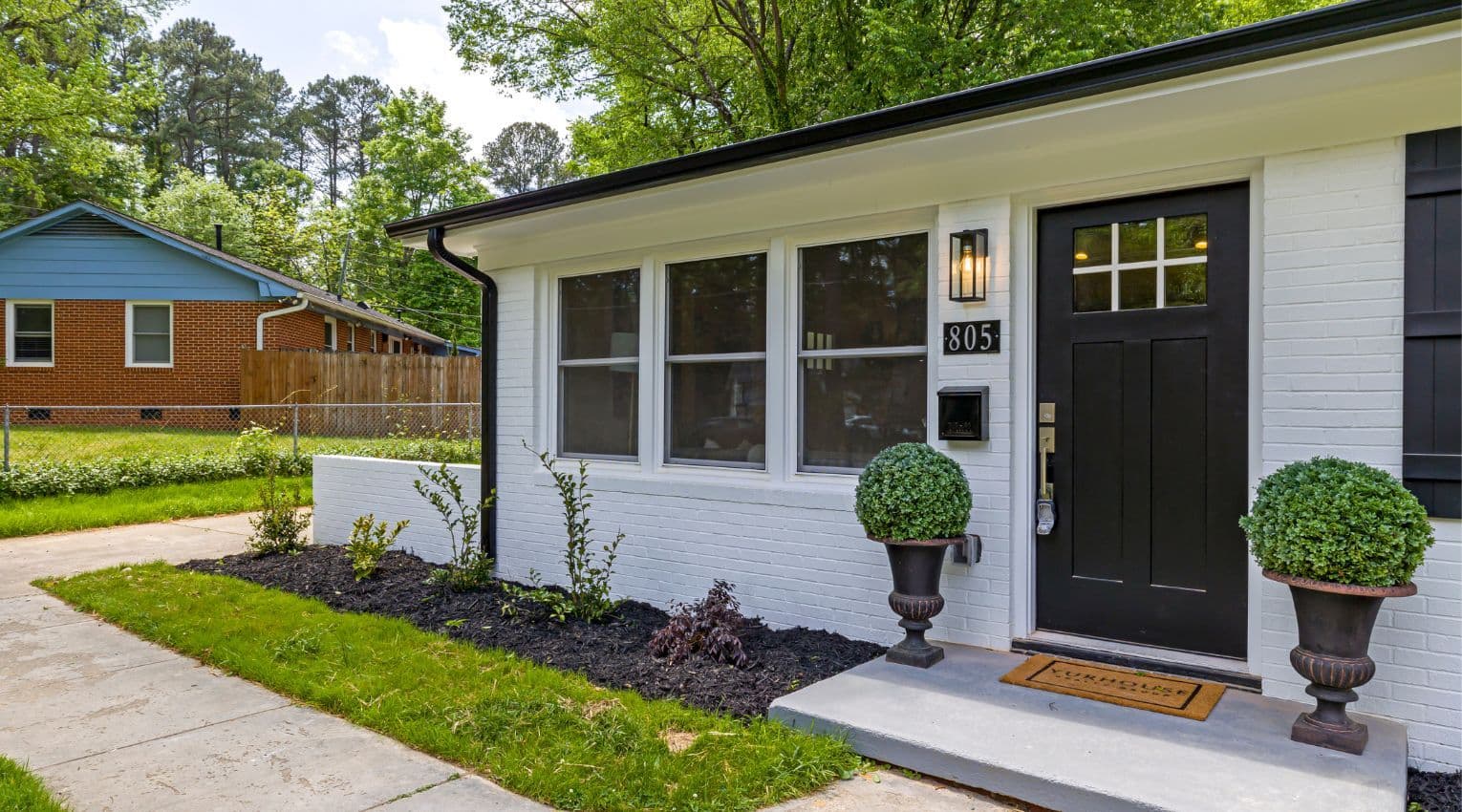Cash-Out Refinance vs. Home Equity Loan: What’s the Difference?

Compare your financial situation now to when you first took out your mortgage. What’s changed?
Chances are, a lot. Perhaps your interest rates have skyrocketed or your monthly loan payment has become more than you can afford. Refinancing can help you shift your debt to a better place.
Every year, millions of homeowners choose to refinance. Two of the most popular options for obtaining a more desirable interest rate and payment terms are cash-out refinances and home equity loans. Both offer borrowers a lump-sum payout, but each has different terms, fees, and interest rates.
In order to take advantage of these programs, borrowers typically need a credit score of 680 or above. If your score is lower, prepare to pay higher interest rates.
As you weigh your options, keep your financial situation in mind to determine which, if either, option is right for you.
What Is a Cash-Out Refinance?
Cash-out refinancing requires you to take out an entirely new mortgage. You’ll likely have a new interest rate and a new monthly payment.
According to NerdWallet, “a cash-out refinance replaces your existing mortgage with a new home loan for more than you owe on your house.” The difference between the outstanding balance on your original mortgage and the amount you borrow when refinancing will be paid to you in cash.
While you can spend that money on pretty much anything, Zillow recommends using it to improve your financial situation by paying down debt or renovating your home. Consolidating or eliminating your debt will help improve your overall credit while home improvements can help increase your home’s value. You could also use the lump sum to fund higher education as cash-out refinancing may offer lower interest rates than private education loans.
Compared to home interest loans, the interest rates offered for cash-out refinances are generally lower.
If you bought your home at a time when interest rates were high and you can lock in a lower rate with a cash-out refinance, then this may be the best option for you, according to NerdWallet.
Cash-out refinances are also generally easier to qualify for than home interest loans and offer a longer period to pay back the debt, sometimes even more than the 30 years of a typical mortgage.
As with any financial decision, you’ll want to consider the costs. Cash-out refinancing comes with high closing costs for the loan and often higher monthly payments. After all, you’re taking out a larger mortgage, which means bigger payments and more interest across the life of the loan.
But they can be a savvy option for people looking to borrow a large amount of money without having to deal with multiple loans.
As Alan Moore, CEO of AdvicePay, shared with Bankrate, cash-out refinancing is a “good way to grab equity and keep it all in one loan.”
What Is a Home Equity Loan?
Unlike a cash-out refinance, a home equity loan does not replace your original mortgage. Instead, a home equity loan allows you to borrow money against the equity you’ve accrued in your house, using your home to guarantee the loan.
Your original mortgage, and its interest rate, won’t change. The new home equity loan will be a separate debt subject to current interest rates.
If you bought your home at a point when interest rates were lower than they currently are, then a home equity loan might make more sense than a cash-out refinance, according to NerdWallet.
Because lenders usually pay most or all of the closing costs on home equity loans, they’re also a better option for people who are looking for a smaller lump-sum payout. Why pay thousands of dollars in fees for a cash-out refinance if you only want to borrow an additional $25,000?
Home equity loans can be a smart choice for people who are looking to pay back their new debt quickly. The terms on home equity loans are generally shorter than traditional mortgages and cash-out refinances—often less than 15 years.
“Try to go for the shortest term possible but still have a payment you can afford,” Johnna Camarillo, assistant vice president at Navy Federal Credit Union, told NerdWallet. “Depending on how much you’re borrowing, the difference between a 10- and a 15-year equity loan may only be $50 a month. But the amount of interest you’re going to pay over that extra five years is a lot of money.”
Frequently Asked Questions About Refinancing
Is home equity loan cheaper than refinancing?
That depends on a few different factors. While home equity loans can have higher interest rates than cash-out refinances, the closing costs of a refinance can exceed those of home equity loans — so your best bet is to shop around and compare costs and lenders when deciding between the two.
Can you pull equity out of your home without refinancing?
Yes! There are a few different options to access your home equity without refinancing it, including a home equity loan, home equity line of credit (HELOC), and home equity investment, also called a home equity agreement. Each solution has its own pros and cons, so it’s important to do your research to determine the best choice for you.
Is it better to refinance a loan or get a new loan?
To be clear, when you refinance, you are getting a new loan, typically with more favorable terms. If you’re deciding between refinancing and a home equity loan, gain, this depends on a few different factors, including your specific lender, interest rate, and closing costs — as well as the amount of equity you’ve built in your home.
Is it a good idea to take equity out of your house?
Any home financing decision depends on your own personal financial situation and goals, but for many homeowners, tapping into their equity can be a great way to handle life expenses.
Can you refinance and take out an equity loan at the same time?
While it’s not very common, you may be able to use a home equity loan to refinance your mortgage in order to take advantage of a lower interest rate and make the most of your equity.
Your Third Option
If you’d like to access the equity built up in your home but don’t like the idea of additional monthly payments, a home equity investment could be a good fit for you.
Home equity investments give you access to the equity you’ve built up in your home without monthly payments. At the end of the term, typically between 10-30 years depending on the investor, you pay an agreed-upon percentage of your home's value.
Before you choose a cash-out refinance, home equity loan, or an equity investment product, take the time to find the smartest way to access cash for your financial situation. Your best solution will depend on how much cash you need, your credit score, and your property, among other factors.
Tap into your equity with no monthly payments. See if you prequalify for a Hometap investment in less than 30 seconds.
You should know
We do our best to make sure that the information in this post is as accurate as possible as of the date it is published, but things change quickly sometimes. Hometap does not endorse or monitor any linked websites. Individual situations differ, so consult your own finance, tax or legal professional to determine what makes sense for you.



